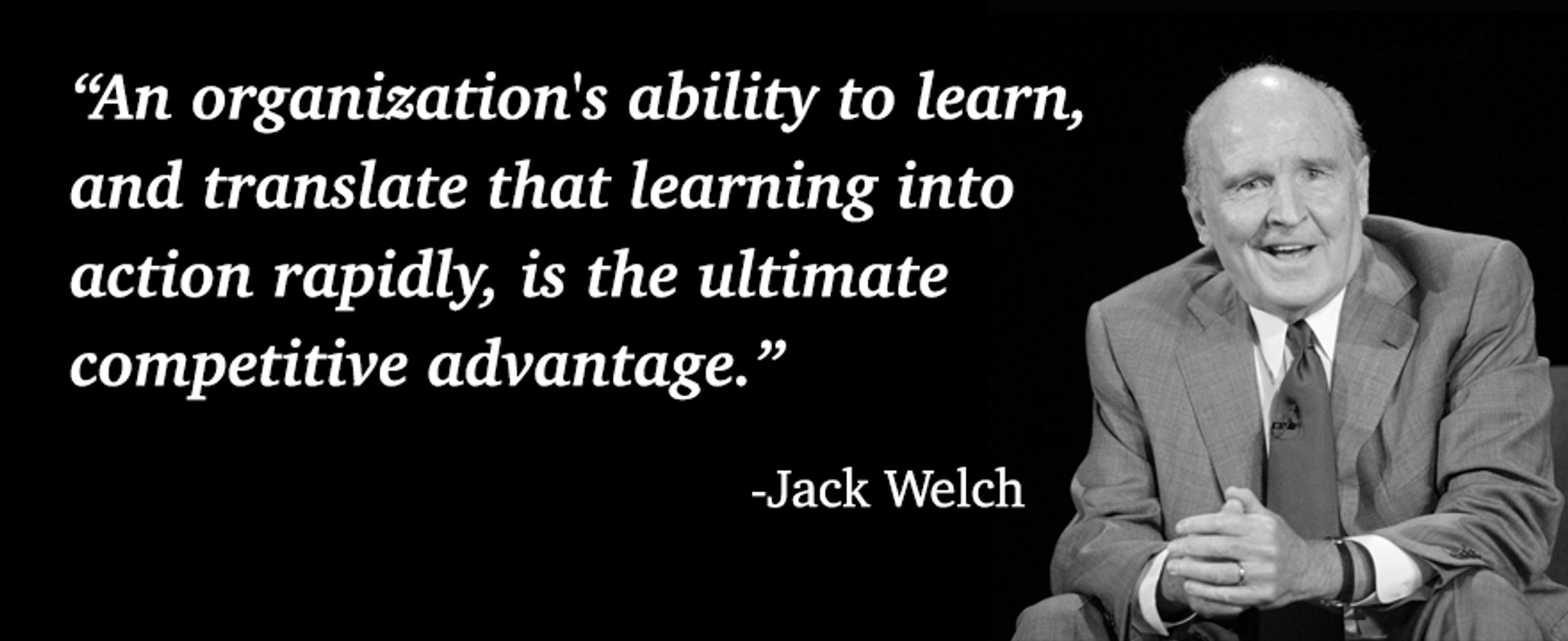
Jack Welch: Final Thoughts
March 18, 2020It's hard to make headlines these days outside the COVID‐19 crisis, but the death of retired General Electric Co. CEO Jack Welch at the age of 84 occupied nearly 3,000 words in the New York Times just a couple of weeks ago.
You have to read about halfway through Welch's obituary to see Six Sigma referenced, but his role in popularizing the problem‐solving system across the global business scene can't be understated. Motorola may have been responsible for deploying Six Sigma as we know it today, but Welch's push to embed that problem‐solving ethos into the DNA of a then‐$70‐billion‐a‐year company is what sent other CEOs scrambling to follow suit. On the occasion of Welch's passing, it's worth taking a look at how he's being remembered — and what lessons we can learn from where he succeeded and stumbled.
- 'Self‐confident entrepreneurs:' The Times piece quotes Welch's memoir, where he sheds light on the culture he sought to embed at the manufacturing giant over his two decades at the helm, which ended in 2001. What he wanted at GE, Welch wrote, was "a company filled with self‐confident entrepreneurs who would face reality every day." However, it was later adopters who evolved this language to mean employee empowerment, which has become the heartbeat of Lean and Six Sigma, from the frontline to the boardroom.
- Jack be nimble: The reality Welch saw in the early 1980s — and how he acted on it — is ultimately what cemented his legacy. The Times piece notes that Welch moved decisively to diversify GE into the finance sector, a move he made while watching overseas appliance makers swoop in with lower expenses. It was a burning platform that not everyone saw, though — as Welch wrote in his memoir, "no one inside or outside the company perceived a crisis." It was Welch's vision and his constant environmental scanning that set the company on the path to more than quadrupling revenue during his tenure. It's also a testament to the value of making data‐driven decisions — but not waiting until it's too late. Welch captured this perfectly in a one‐liner of his that the Times printed in his obituary: "If we wait for the perfect answer, the world will pass us by."
- The cost of transformation: Welch's legacy is more than a little complicated, and not just because lavishly paid CEOs aren't exactly the most admired workers in the world today. In his early tenure at GE, he slashed more than a quarter of the workforce over just five years, the Times notes, a move he justified as being tough but needed. Cutting payroll, of course, is virtually last on the list for outcomes of process improvement initiatives, so it's helpful to at least acknowledge that the job‐cutting that earned Welch the nickname "Neutron Jack" happened a full decade before GE began its Six Sigma journey. By the time Welch left GE in 2001, its global payroll had grown 40% since it adopted Six Sigma in 1995. In that same time, revenue grew about 60%.
It's difficult to know the true impact of the decisions we make as leaders until we have the value of hindsight. Welch's passing is a reminder that legacies are rarely the sum of a few big decisions — instead, they're the complex calculus of the many strategic moves we make along the way.
If you get a chance to read Welch's lengthy obituary in the Times, I also recommend checking out a video I found on YouTube of him talking about Six Sigma, where he tells the interviewer that "serving the customer what they want when they want it is, in fact, the winning game." There's nothing complicated about how on‐target that is.

President • MoreSteam
Peg Pennington joined MoreSteam's executive team in 2018 and today leads all company operations as President. Previously, Peg was the Executive Director of the Center for Operational Excellence at The Ohio State University, where she helped shape the Master of Business Operational Excellence ('MBOE') program and strengthen standards for Lean Six Sigma certification. She serves on the board of directors for the Lean Enterprise Institute (LEI). A recognized voice in operational excellence, Peg speaks at over a dozen national conferences each year and leads product workshops.
Before joining MoreSteam, Peg was the Executive Director of the Center for Operational Excellence at The Ohio State University. Peg holds a bachelor’s degree in finance from Michigan State University and an MBA from the University of Dayton.



